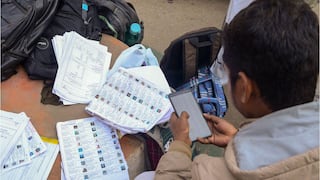World Diabetes Day 2023: What Are The Different Types Of Diabetes? Know About Them
World Diabetes Day which is observed annually on November 14, serves as the primary global initiative dedicated to raising awareness about diabetes mellitus.

World Diabetes Day which is observed annually on November 14, serves as the primary global initiative dedicated to raising awareness about diabetes mellitus. This campaign is spearheaded by the International Diabetes Federation (IDF), and each year, and revolves around a specific theme related to diabetes. In this article, we will discuss about the diufferent types of diabetes, their symptoms, causes and treatment options.
Different Type Of Diabetes:
Dr Vidya Walinjkar, who is a Consultant Diabetologist, at Fitterfly mentioned the different kinds of diabetes:
- Type 2 (diabetes mellitus)
This is a chronic lifestyle condition in which the body either does not produce sufficient insulin, or the body cells are resistant to the hormone. As a result, blood sugar levels are high in individuals with this condition. T2DM commonly seen in adults but can occur in children too. Common risk factors for type 2 diabetes are obesity, sedentary lifestyle, lack of physical exercise, family history of diabetes,pre diabetes,smoking,alcohol and in females history of gestational diabetes or PCOD. In majority of cases of T2 Diabetes they don’t have any symptoms however some may experience symptoms like weight loss, increased thirst, urination, increased hunger, frequent infections like skin or urinary infections etc.
- Type 1 (Juvenile diabetes)
This is an autoimmune disorder in which the body produces little or no insulin which is a hormone produced by the pancreas that helps blood sugar enters the cells in the body for energy. When there is deficient insulin, the blood sugar levels rise, causing damage to several organs and complications.
Since this condition usually develops in children, teens and young adults, type 1 diabetes is also called juvenile diabetes. Around 5% to 10% of people with diabetes have this type of condition. It is less common than diabetes mellitus (type 2 diabetes).Insulin therapy is essential for management of type 1 diabetes along with lifestyle modifications.
- Gestational diabetes/GDM
This form of diabetes is diagnosed during pregnancy and is characterized by high blood sugar levels. Most women do not have any symptoms and are diagnosed during routine blood tests performed during pregnancy. Obesity, PCOD, advanced age and family history of diabetes are some of the risk factors for developing GDM. Lifestyle modification plays an important role in the management of GDM in early stage. Later insulin may be prescribed if needed. Women who develop gestational diabetes are also at an increased risk of developing type 2 diabetes later in life.
- Latent Autoimmune Diabetes in adults (LADA)
Also called type 1.5 diabetes due to its similarity to type 1 diabetes. Unlike type 1 diabetes, people with LADA see a worsening of symptoms slowly over a period of time. They may respond to oral drugs for several months or years after diagnosis, however subsequently need insulin therapy. Symptoms of LADA usually show up a little later in life, around 30 years.
- Monogenic Diabetes/Maturity-Onset Diabetes of the Young (MODY)
This type of diabetes is rare and shows up when an individual is a young adult or an adolescent. MODY occurs due to a genetic mutation that affects how well the body makes insulin. When there isn’t sufficient insulin, your blood sugar levels rise. There are different types of MODY diagnosis of which needs genetic testing.
- Neonatal diabetes
Neonatal diabetes mellitus occurs due to a single gene mutation that occurs in children who are less than 6 months of age. This diabetes is also called congenital diabetes or diabetes of infancy. Early treatment with medications like sulfonyl urea may improve outcomes.
There are some other forms of diabetes, such as:
- Drug-induced Diabetes e.g Steroid induced Diabetes
- Diabetes due to genetic disorders, and
- Pancreatic Diabetes or FCPD
Treatment Options For Different Types Of Diabetes:
Dr Sumitra Agarwal said, "Regardless of the type of diabetes, patients should do regular check-ups, monitoring potential complications, and adhering to prescribed treatments are crucial for managing diabetes effectively"and went on to list the following:
Type 1 Diabetes:
- Insulin therapy: Since the body doesn't produce insulin in type 1 diabetes, patients need to take insulin regularly. This can be done through injections or insulin pumps.
- Blood sugar monitoring: Regular monitoring of blood sugar levels is crucial to ensure they stay within target ranges.
- Carb counting: Patients often need to be aware of their carbohydrate intake as it affects blood sugar levels.
- Healthy lifestyle: A balanced diet and regular exercise can help manage blood sugar levels and overall health.
Type 2 Diabetes:
- Dietary changes: Consuming a healthy, balanced diet with controlled carbohydrates can help regulate blood sugar levels.
- Exercise: Regular physical activity helps increase insulin sensitivity.
- Oral medications: There are various drugs, like Metformin, that help the body use insulin more effectively or reduce glucose production.
- Insulin: Some people with type 2 diabetes may also need insulin, especially as the disease progresses.
- Monitoring: Regularly checking blood sugar levels ensures they're within the target range.
Gestational Diabetes (diabetes during pregnancy):
- Diet and exercise: Modifications in diet and regular exercise can often help manage gestational diabetes.
- Blood sugar monitoring: Regular checks are vital to ensure the safety of both the mother and the baby.
- Insulin: Some women might need insulin if diet and exercise aren't enough to maintain blood sugar levels.
Monogenic Diabetes (a rare form caused by a single gene mutation):
- Oral medications: Some forms can be treated with oral drugs.
- Insulin: Depending on the specific genetic mutation, some patients may require insulin.
Secondary Diabetes (caused by another condition or medication):
- Treat the primary condition: Addressing the root cause can sometimes alleviate secondary diabetes.
- Medication or insulin: Depending on the cause and severity, blood sugar-lowering medications or insulin might be required.
Maturity Onset Diabetes of the Young (MODY):
- Oral medications: These are often effective.
- Monitoring: Regular blood sugar checks are essential.
Neonatal Diabetes:
- Oral medications: Some forms can be treated with specific oral drugs.
- Insulin: Some patients may require insulin, especially if diagnosed shortly after birth.
Types Of Diabetes As Per Ayurveda
The word "Prameha" literally translates to "urinary disorders with increased urine volume and turbidity." There are twenty forms of Prameha, according to Ayurveda; four arise from Vata, six from Pitta, and ten from Kapha influences. Madhumeha, a subtype of Prameha is marked by urine that is sweet and is co-linked with diabetes.
Basically, there are two kinds of Prameha that are frequently seen in Ayurveda:
- Avarana
- Dhatuksyaya
Dr Chaitali Deshmukh, who is an Ayurvedic consultant at Birla Ayurveda, explains that according to Ayurveda, an obstruction in the channels' courses causes Avarana. Stressed-out Kapha could be the source of the blockage. Adult-onset diabetes results from this. Conversely, Dhatukshaya describes the body's tissues becoming depleted. Juvenile diabetes may result from this.
Ayurveda views digestion as an extremely significant process aside from that.
"The digestive fire, known as Agni, must be in good functioning order for the digestive system to function effectively. Numerous issues may arise if this digestive fire is weak (due to a Dosha imbalance or other factors). Toxins accumulate as a consequence, which may interfere with the body's regular functions. Additionally, it may impair immunity, making the body less able to fight off illnesses and infections," said Dr. Chaitali.
Dr Chaitali further went on to explain that diabetes frequently makes other conditions' symptoms appear worse. Individuals with diabetes may also experience additional health issues, such as heart or renal problems. However, they could not experience the symptoms due to their diabetes. The cause of this is high blood sugar. Due to excessive blood sugar, there are several instances of people having a minor heart attack and being unaware of it. Thus, maintaining control over blood sugar levels is crucial.
[Disclaimer: The information provided in the article, including treatment suggestions shared by doctors, is intended for general informational purposes only. It is not a substitute for professional medical advice, diagnosis, or treatment. Always seek the advice of your physician or other qualified healthcare provider with any questions you may have regarding a medical condition.]
Related Video
Union Budget 2024: Nirmala Sitharaman Reaches Parliament Ahead Of Budget Presentation Today | ABP News





































